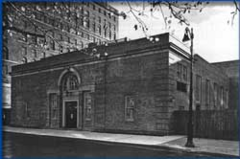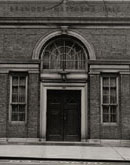Difference between revisions of "Brander Matthews Hall"
Absentminded (talk | contribs) |
Absentminded (talk | contribs) |
||
| Line 9: | Line 9: | ||
* [http://www.columbia.edu/cu/alumni/Magazine/Spring2002/Matthews.html Brander Matthews and Theater Studies at Columbia by Howard Stein] | * [http://www.columbia.edu/cu/alumni/Magazine/Spring2002/Matthews.html Brander Matthews and Theater Studies at Columbia by Howard Stein] | ||
*[http://query.nytimes.com/gst/fullpage.html?res=990CE0D8113FF93BA35752C1A96E958260&sec=&spon=&pagewanted=print MUSIC; Reclaiming A Rich History Of New Opera] | *[http://query.nytimes.com/gst/fullpage.html?res=990CE0D8113FF93BA35752C1A96E958260&sec=&spon=&pagewanted=print MUSIC; Reclaiming A Rich History Of New Opera] | ||
| − | *[http://www.usoperaweb.com/2002/september/columbia.htm Columbia University, the Columbia Opera Workshop and the Efflorescence of American Opera in the 1940s and 1950s] | + | *[http://web.archive.org/web/20070308183916/http://www.usoperaweb.com/2002/september/columbia.htm Columbia University, the Columbia Opera Workshop and the Efflorescence of American Opera in the 1940s and 1950s Part I] |
[[Category:Demolished buildings on the Morningside Heights campus]] | [[Category:Demolished buildings on the Morningside Heights campus]] | ||
Revision as of 18:39, 16 July 2010
Brander Matthews Hall was built in 1940 at 117th St and Amsterdam Avenue, and named for famed drama scholar Brander Matthews[1]. It housed the famous Columbia Opera Workshop, a theater with just under 300 seats, and a bust of Matthews in the entrance. The building was razed only 18 years later, in 1958, to make way for Jerome Greene Hall. The bust now sits in Dean Austin Quigley's office.

